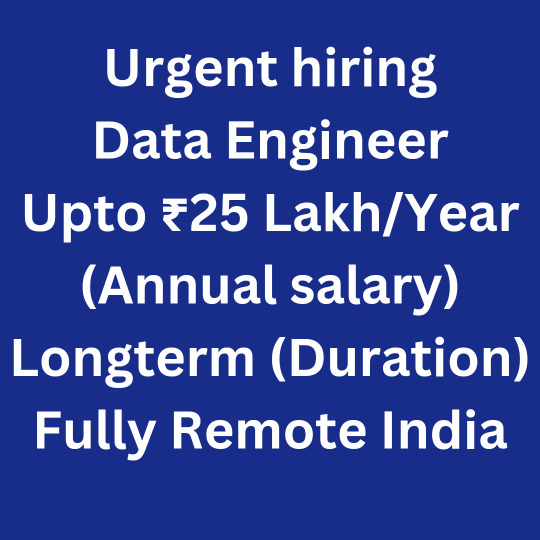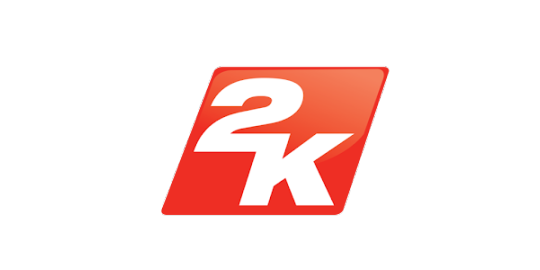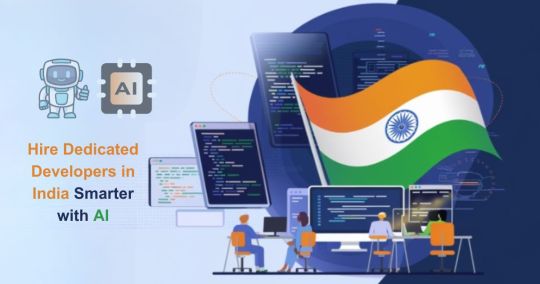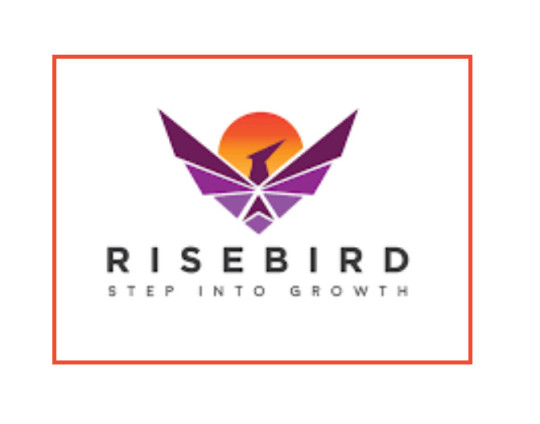#hire remote data engineer
Explore tagged Tumblr posts
Text
National Plastic Action Partnership Analyst Job, Vientiane, Lao PDR
The United Nations Development Programme (UNDP) is seeking a dedicated National Plastic Action Partnership (NPAP) Analyst in Vientiane, Lao PDR. This exciting opportunity not only positions you at the heart of the fight against plastic pollution but also enables you to work closely with national authorities, international organizations, and influential private-sector partners. If you’re ready to…
#Careers with the UN.#Entry-Level UN Jobs#Freelance UN Jobs#How to Apply for UN Jobs#Internship Opportunities with the UN#Part-Time UN Jobs#Remote UN Jobs#Temporary UN Jobs#UN Administration Jobs#UN Communications Jobs.UN Jobs#UN Communications Officer Jobs#UN Consultancy Jobs#UN Contract Jobs#UN Data Analyst Jobs#UN Data Science Jobs#UN Employment Opportunities#UN Engineering Jobs#UN Environmental Jobs#UN Field Officer Jobs#UN Health and Safety Jobs#UN Hiring#UN HR Jobs#UN Human Rights Officer Jobs#UN Humanitarian Jobs#UN International Jobs#UN Internship Vacancies.UN Project Manager Jobs#UN IT Jobs#UN Job Openings#UN Job Opportunities#UN Jobs Application Process
0 notes
Text
Tech Active Guide: Nurturing Connectivity with Remote Team Building
Explore virtual team building and remote work, uncovering benefits, challenges, and strategic initiatives for fostering collaboration. Visit us to know more.
#custom software development companies#custom software development services#hire net developers#machine learning development company#angular js development services#hire front end developer#hire backend developer#dedicated software development team#hire data engineers#machine learning consulting#offshore developers#hire software development team#data science experts#ai ml consulting#ai and ml consulting#custom machine learning solutions#machine learning solutions company#hire top software developers#hire devops engineer#python software engineer#remote python developers#remote full stack developers#remote developers#devops outsourcing
0 notes
Text

#jobs hiring#tech jobs#usa jobs#data engineers#data scientist#indiajobs#full time jobs#remote jobs#remote work
0 notes
Text
According to a report by Domo, we will be producing 165 zettabytes of data per year by 2025. As a result, more and more companies are investing in big data and AI technologies to manage unstructured data. It helps companies to make well-informed decisions and improve metrics such as customer satisfaction, customer retention, organizational efficiency, revenue, etc.
#hire Big Data engineers#big data analytics#hire Big Data engineers in India#remote Big Data engineer jobs#hire data engineer#Big Data engineers
0 notes
Note
I know you love scivener, but do you know anything about ellipsus? It's meant to be an aternative to google docs for collaborative writing.
I heard about them when they dropped nanowrimo as a sponsor over their inclusion of AI bullshit, which seemed promising. And digging around on their homepage I saw mentions of beta reading and ao3, and apparently they're trying to promote themselves on Tumblr now.
So it really sounds like we're the target audience, which could be great, but I don't know enough to be able to tell if there's an obvious catch somewhere?
--
This is the first I've heard of them. A quick scroll through their website seems promising.
As usual, the basic questions are:
How much does this product cost to develop?
Do they have a business plan that makes sense with that cost?
This kind of software can, theoretically, be made by a few friends dicking around, not a huge programmer team all of whom have it as their primary job, so it isn't the pile of massive red flags that all attempts at social media are.
From the site:
"Today we are a small, close-knit team of seven, located across the post-capitalist landscapes of Berlin, Bologna, Buenos Aires, and Szczecin. (So much for our alliteration-based hiring strategy.) True to our mission, we're a progressive, remote-friendly company that prioritizes creativity, community, and creative exchange."
Jobs are listed as: Co-founder and CEO, Co-founder and community, Product and marketing, Design, and Engineering x3.
That seems like a reasonable breakdown and a size of team that could possibly be paid for with some non-insane business model.
The types of red flags we're looking for are
"We want to be the next instagram!"
Many idea people with nebulous skills, few programmers
Thinking you can run tumblr with three programmers
Thinking you can pay for 100 programmers with a cheapass subscription model
Programmers are random, cheap contract workers the founders don't know
Venture capital from sources that will want a big payout rather than support from people who share the goals/values of the team
Extremely overcrowded field with tons of products that do exactly this already
Unclear nature of product or a product that doesn't seem to actually have a market
etc.
What they say about money is in the FAQ:
Will Ellipsus have a paid plan? In order to grow the team and fund ongoing feature development, we will need to charge for a version of Ellipsus at some point. A paid version would be targeting users with specific needs related to advanced security, data syncing, and collaboration. But there will always be a free version of Ellipsus, and we want to be as generous as possible in what's included on that free plan (e.g., unlimited docs and drafts, for starters). It takes time to build a great freemium experience (not to mention a premium product people will happily pay for), which is why we won't roll that out in 2024. While the features that will be included in our paid plan aren't final-final, we can share that everything in the product today will be included in our free plan.
This sounds reasonable. It just remains to be seen whether they keep at it or go belly up (taking your data with them). I guess you'd have to know more about the specific people building this to decide whether they'll be reliable.
The biggest potential issues I see are it being difficult to get people to ditch google docs despite its issues, this taking off big time and the owners deciding to sell it for $$$$$$ to someone who will then ruin it, or the team just not being competent.
But since I don't know any of them, I have no idea how good they are at business.
71 notes
·
View notes
Text
Summer 2025 Game Development Student Internship Roundup, Part 1
Internship recruiting season has begun for some large game publishers and developers. This means that a number of internship opportunities for summer 2025 have been posted and will be collecting applicants. Internships are a great way to earn some experience in a professional environment and to get mentorship from those of us in the trenches. If you're a student and you have an interest in game development as a career, you should absolutely look into these.
If you know of any game development internships that aren't listed here, please tell me! I'll try to collect another batch when EA posts theirs as a follow-up.

Technical Artist Intern (Remote!)
Sound Design Intern (Remote!)

Game Design Intern
Game Engineering Intern
Data Analytics & Data Science Intern
Localization Production Intern
Environment Art Intern
Animation Intern
VFX Intern
3D Character Art Intern
Site Reliability Engineering Intern

Concept Artist Intern (Canada)
Animation Intern
VFX Intern
Game Engineering Intern
Technical Artist Intern
Threat Intelligence Analyst Intern
UI/UX Design Intern
User Research Intern
Computer Graphics Intern
Software Engineering Intern
Production & Project Management Intern
Concept Artist Intern (California)

World Designer Intern

3D Artist Intern
Animation Programmer Intern
Animation Technical Design Intern
Audio Design Intern
Backend Engineer Intern
Balance Design Intern
Character Artist Intern
Engine Programmer Intern
Environment Art Intern
Game Design Intern
Game Security Intern
Gameplay Programmer Intern
Gameplay Systems Engineer Intern
Salesforce Developer Intern
Software Engineer Intern
Environment Art Intern
Game Design Intern
Gameplay Programmer Intern
Tools Programmer Intern
Technical Artist Intern
Technical Character Animation Intern
Technology App Portfolio Intern
Tools Programmer Intern

Concept Artist Intern
At time of writing, Electronic Arts was performing maintenance on their recruiting site and should have new openings posted on November 12th 2024. I'll do a second round of internship opportunities once they post, along with Ubisoft and any others I missed.
Brush up your resume and focus on any game dev work you've done. Amateur game dev work counts! Tabletop game mastering counts! Amateur board and card game design counts! Making your own CCG fan sets or draft cube counts! Game jam work counts! These make a bigger difference when it comes to hiring than most other kinds of work experience.
If you need assistance with your resume/CV, cover letter, or have other questions, join our discord and ask. The server is full of experienced developers who can help review your materials and give you suggestions. I also suggest taking a look at my Game Career FAQ. There's a lot of answers in there already. Best of luck out there.
[Join us on Discord] and/or [Support us on Patreon]
Got a burning question you want answered?
Short questions: Ask a Game Dev on Twitter
Long questions: Ask a Game Dev on Tumblr
Frequent Questions: The FAQ
28 notes
·
View notes
Photo

10 Years of Ancient History Encyclopedia
Ancient History Encyclopedia's CEO Jan van der Crabben writes about the organization's 10-year history.
Ancient History Encyclopedia just turned ten! On 25 August 2009, we officially launched the Ancient History Encyclopedia website by submitting ancientopedia.com (its first domain) to search engines. We have come a long way and it has been an amazing journey for everyone involved. Congratulations to the team and thank you to all our members, donors, supporters, and readers!
How Did We Get Here?
Whenever we speak at conferences, people want to know how we got where we are now. How did a home-brew website grow to become one of the world's biggest and most-read history websites, completely bootstrapped without any investment?
We are not business gurus and we do not have a recipe for success that would work for everyone. Still, we have some idea of what we did right along the way, which we will talk about in this article. I believe it is a combination of luck, technical know-how, great content, and a dedicated and passionate team that made it all happen.
Luck is always important. We launched at the right time when rising in search rankings was a lot easier and there were fewer high-quality websites. Had we launched five years later, our growth would have been slower.
Technical know-how allowed us to build a website that was optimized for search engines from the start, built for historical data. We had a good idea of how to build a website, integrate it with other services, and optimize it for search. We were also always able to quickly adapt to changing needs.
Great content is the key to any publication. We always focused on quality, and our standards rose with time. Even if we could have earned more money with sponsored articles or spammy ads, we never compromised, for example.
Great teams are what make or break companies. I have found that you should not hire people for their qualifications but for their personal attitude and whether they are a cultural fit. We have got a great team that is passionate about what we do. We all work remotely from home; without an office where people have to show up, you have to love what you do!
Continue reading...
15 notes
·
View notes
Text
Hire Dedicated Developers in India Smarter with AI
Hire dedicated developers in India smarter and faster with AI-powered solutions. As businesses worldwide turn to software development outsourcing, India remains a top destination for IT talent acquisition. However, finding the right developers can be challenging due to skill evaluation, remote team management, and hiring efficiency concerns. Fortunately, AI recruitment tools are revolutionizing the hiring process, making it seamless and effective.

In this blog, I will explore how AI-powered developer hiring is transforming the recruitment landscape and how businesses can leverage these tools to build top-notch offshore development teams.
Why Hire Dedicated Developers in India?
1) Cost-Effective Without Compromising Quality:
Hiring dedicated developers in India can reduce costs by up to 60% compared to hiring in the U.S., Europe, or Australia. This makes it a cost-effective solution for businesses seeking high-quality IT staffing solutions in India.
2) Access to a Vast Talent Pool:
India has a massive talent pool with millions of software engineers proficient in AI, blockchain, cloud computing, and other emerging technologies. This ensures companies can find dedicated software developers in India for any project requirement.
3) Time-Zone Advantage for 24/7 Productivity:
Indian developers work across different time zones, allowing continuous development cycles. This enhances productivity and ensures faster project completion.
4) Expertise in Emerging Technologies:
Indian developers are highly skilled in cutting-edge fields like AI, IoT, and cloud computing, making them invaluable for innovative projects.
Challenges in Hiring Dedicated Developers in India
1) Finding the Right Talent Efficiently:
Sorting through thousands of applications manually is time-consuming. AI-powered recruitment tools streamline the process by filtering candidates based on skill match and experience.
2) Evaluating Technical and Soft Skills:
Traditional hiring struggles to assess real-world coding abilities and soft skills like teamwork and communication. AI-driven hiring processes include coding assessments and behavioral analysis for better decision-making.
3) Overcoming Language and Cultural Barriers:
AI in HR and recruitment helps evaluate language proficiency and cultural adaptability, ensuring smooth collaboration within offshore development teams.
4) Managing Remote Teams Effectively:
AI-driven remote work management tools help businesses track performance, manage tasks, and ensure accountability.
How AI is Transforming Developer Hiring
1. AI-Powered Candidate Screening:
AI recruitment tools use resume parsing, skill-matching algorithms, and machine learning to shortlist the best candidates quickly.
2. AI-Driven Coding Assessments:
Developer assessment tools conduct real-time coding challenges to evaluate technical expertise, code efficiency, and problem-solving skills.
3. AI Chatbots for Initial Interviews:
AI chatbots handle initial screenings, assessing technical knowledge, communication skills, and cultural fit before human intervention.
4. Predictive Analytics for Hiring Success:
AI analyzes past hiring data and candidate work history to predict long-term success, improving recruitment accuracy.
5. AI in Background Verification:
AI-powered background checks ensure candidate authenticity, education verification, and fraud detection, reducing hiring risks.
Steps to Hire Dedicated Developers in India Smarter with AI
1. Define Job Roles and Key Skill Requirements:
Outline essential technical skills, experience levels, and project expectations to streamline recruitment.
2. Use AI-Based Hiring Platforms:
Leverage best AI hiring platforms like LinkedIn Talent Insightsand HireVue to source top developers.
3. Implement AI-Driven Skill Assessments:
AI-powered recruitment processes use coding tests and behavioral evaluations to assess real-world problem-solving abilities.
4. Conduct AI-Powered Video Interviews:
AI-driven interview tools analyze body language, sentiment, and communication skills for improved hiring accuracy.
5. Optimize Team Collaboration with AI Tools:
Remote work management tools like Trello, Asana, and Jira enhance productivity and ensure smooth collaboration.
Top AI-Powered Hiring Tools for Businesses
LinkedIn Talent Insights — AI-driven talent analytics
HackerRank — AI-powered coding assessments
HireVue — AI-driven video interview analysis
Pymetrics — AI-based behavioral and cognitive assessments
X0PA AI — AI-driven talent acquisition platform
Best Practices for Managing AI-Hired Developers in India
1. Establish Clear Communication Channels:
Use collaboration tools like Slack, Microsoft Teams, and Zoom for seamless communication.
2. Leverage AI-Driven Productivity Tracking:
Monitor performance using AI-powered tracking tools like Time Doctor and Hubstaff to optimize workflows.
3. Encourage Continuous Learning and Upskilling:
Provide access to AI-driven learning platforms like Coursera and Udemy to keep developers updated on industry trends.
4. Foster Cultural Alignment and Team Bonding:
Organize virtual team-building activities to enhance collaboration and engagement.
Future of AI in Developer Hiring
1) AI-Driven Automation for Faster Hiring:
AI will continue automating tedious recruitment tasks, improving efficiency and candidate experience.
2) AI and Blockchain for Transparent Recruitment:
Integrating AI with blockchain will enhance candidate verification and data security for trustworthy hiring processes.
3) AI’s Role in Enhancing Remote Work Efficiency:
AI-powered analytics and automation will further improve productivity within offshore development teams.
Conclusion:
AI revolutionizes the hiring of dedicated developers in India by automating candidate screening, coding assessments, and interview analysis. Businesses can leverage AI-powered tools to efficiently find, evaluate, and manage top-tier offshore developers, ensuring cost-effective and high-quality software development outsourcing.
Ready to hire dedicated developers in India using AI? iQlance offers cutting-edge AI-powered hiring solutions to help you find the best talent quickly and efficiently. Get in touch today!
#AI#iqlance#hire#india#hirededicatreddevelopersinIndiawithAI#hirededicateddevelopersinindia#aipoweredhiringinindia#bestaihiringtoolsfordevelopers#offshoresoftwaredevelopmentindia#remotedeveloperhiringwithai#costeffectivedeveloperhiringindia#aidrivenrecruitmentforitcompanies#dedicatedsoftwaredevelopersindia#smarthiringwithaiinindia#aipowereddeveloperscreening
5 notes
·
View notes
Text
How AI is Changing Jobs: The Rise of Automation and How to Stay Ahead in 2025
AI and Jobs

Artificial Intelligence (AI) is everywhere. From self-checkout kiosks to AI-powered chatbots handling customer service, it’s changing the way businesses operate. While AI is making things faster and more efficient, it’s also making some jobs disappear. If you’re wondering how this affects you and what you can do about it, keep reading — because the future is already here.
The AI Boom: How It’s Reshaping the Workplace
AI is not just a buzzword anymore; it’s the backbone of modern business. Companies are using AI for automation, decision-making, and customer interactions. But what does that mean for jobs?
AI is Taking Over Repetitive Tasks
Gone are the days when data entry, basic accounting, and customer support relied solely on humans. AI tools like ChatGPT, Jasper, and Midjourney are doing tasks that once required an entire team. This means fewer jobs in these sectors, but also new opportunities elsewhere.
Companies are Hiring Fewer People
With AI handling routine work, businesses don’t need as many employees as before. Hiring freezes, downsizing, and increased automation are making it tougher to land a new job.
AI-Related Jobs are on the Rise
On the flip side, there’s massive demand for AI engineers, data scientists, and automation specialists. Companies need people who can build, maintain, and optimize AI tools.
Trending AI Skills Employers Want:
Machine Learning & Deep Learning
Prompt Engineering
AI-Powered Marketing & SEO
AI in Cybersecurity
Data Science & Analytics
Click Here to Know more
The Decline of Traditional Job Offers
AI is shaking up industries, and some job roles are disappearing faster than expected. Here’s why new job offers are on the decline:
AI-Driven Cost Cutting
Businesses are using AI to reduce operational costs. Instead of hiring new employees, they’re investing in AI-powered solutions that automate tasks at a fraction of the cost.
The Gig Economy is Replacing Full-Time Jobs
Instead of hiring full-time staff, companies are outsourcing work to freelancers and gig workers. This means fewer stable job opportunities but more chances for independent workers.
Economic Uncertainty
The global economy is unpredictable, and businesses are cautious about hiring. With AI improving efficiency, companies are choosing to scale down their workforce.
Click Here to Know more
Preparing for an AI-Driven Future
Feeling worried? Don’t be. AI isn’t just taking jobs — it’s also creating new ones. The key is to stay ahead by learning the right skills and adapting to the changing landscape.
1. Learn AI and Data Analytics
The best way to future-proof your career is to understand AI. Free courses on platforms like Coursera, Udemy, and Khan Academy can get you started.
2. Develop Soft Skills AI Can’t Replace
AI is great at automation, but it lacks emotional intelligence, creativity, and critical thinking. Strengthening these skills can give you an edge.
3. Embrace Remote & Freelance Work
With traditional jobs shrinking, freelancing is a great way to stay flexible. Sites like Upwork, Fiverr, and Toptal have booming demand for AI-related skills.
4. Use AI to Your Advantage
Instead of fearing AI, learn how to use it. AI-powered tools like ChatGPT, Jasper, and Canva can help boost productivity and creativity.
5. Never Stop Learning
Technology evolves fast. Stay updated with new AI trends, attend webinars, and keep improving your skills.
Click Here to Know more
Final Thoughts
AI is here to stay, and it’s changing the job market rapidly. While some traditional roles are disappearing, new opportunities are emerging. The key to surviving (and thriving) in this AI-driven world is adaptability. Keep learning, stay flexible, and embrace AI as a tool — not a threat.
Click Here to Know more
Share this blog if you found it helpful! Let’s spread awareness and help people prepare for the AI revolution.
3 notes
·
View notes
Text
BENEFITS OF CONTINGENT STAFFING SOLUTIONS FOR BUSINESSES

Adaptability is essential in this constantly changing market structure, where competition is fierce. Being a business owner, you must attend to challenges like market changes, project demand, and workforce balance for smooth production flow. And contingent staffing is one of the strategies applying which you can counter such risk factors, ensuring flexibility, cost savings, and talent accessibility in your company. You can easily monitor productivity, and participate in market competition using our contingent staffing model. There are various benefits of contingent staffing solutions you can leverage for your business growth. Read the entire blog to discover them in detail.
1. Flexibility to Adapt to Business Needs
One of the most significant benefits of contingent staffing solutions is flexibility. Businesses often face fluctuating workloads and seasonal projects that require additional resources. Hiring full-time employees for short-term needs can be costly and inefficient. Contingent staffing allows companies to scale their workforce up or down based on demand. For example, retailers can hire temporary workers during peak shopping seasons, while tech firms can bring in specialists for project-based work. This flexibility helps businesses manage staffing levels without long-term commitments.
2. Access to Specialized Talent
Contingent staffing provides companies with access to a diverse pool of specialized professionals. Many contingent workers have niche expertise in areas like IT, data science, marketing, and engineering. When a business needs skills that are not readily available in-house, a contingent staffing solution can fill the gap quickly. Additionally, companies can hire industry-specific experts without the burden of permanent employment, allowing them to benefit from specialized knowledge without investing in long-term training.
3. Cost Efficiency
Cost savings are one of the other benefits of contingent staffing solutions, where businesses can turn profit. Hiring permanent employees involves expenses such as salaries, benefits, and onboarding costs. With contingent workers, companies pay only for the services they need, avoiding the overhead associated with full-time staff. This model reduces payroll costs, employee benefits, and administrative expenses. Additionally, staffing agencies often handle recruitment, payroll management, and compliance, further lowering the operational burden on the business.
4. Faster Hiring Process
Traditional hiring processes can be time-consuming and resource-intensive. Sourcing candidates, conducting interviews, and completing onboarding can take weeks or even months. In contrast, contingent staffing solutions streamline the hiring process. Staffing agencies or platforms provide pre-screened candidates, allowing businesses to fill roles quickly. This is particularly valuable for urgent projects or when a business experiences an unexpected spike in workload. Faster hiring means less downtime and greater efficiency.
5. Reduced Risk and Liability
Employing full-time staff comes with legal and financial responsibilities, including benefits, severance, and compliance with labour laws. Contingent staffing reduces these risks because the staffing agency often assumes employer responsibilities. This arrangement minimises a company’s exposure to employment-related liabilities, such as wrongful termination claims or benefits disputes. Additionally, contingent workers are usually contract-based, making it easier for businesses to end engagements when projects are complete.
6. Access to a Global Talent Pool
With the rise of remote work, contingent staffing solutions offer access to talent from across the globe. Businesses are no longer limited to local candidates. They can collaborate with professionals from different regions, bringing diverse perspectives and innovative solutions to their projects. This global reach enhances creativity, problem-solving, and the ability to tackle complex business challenges. And that's another one of the vital benefits of contingent staffing solutions.
7. Better Workforce Management
Contingent staffing supports strategic workforce planning by providing greater control over resource allocation. Businesses can allocate contingent workers to specific tasks or projects, optimizing team efficiency. This targeted approach improves productivity and helps companies meet deadlines more effectively. Additionally, contingent staffing allows organizations to focus their full-time employees on core business functions while outsourcing specialized or temporary tasks.
Conclusion
The benefits of contingent staffing solutions are wide! It offers a wide range of benefits for businesses of all sizes and industries. From flexibility and cost savings to faster hiring and access to specialized talent, this staffing model empowers companies to adapt, innovate, and thrive in a dynamic marketplace. By embracing contingent staffing, organizations can enhance their agility, reduce risks, and maintain a competitive edge while efficiently managing their workforce. So do you want to enjoy our contingent staffing solutions benefits? Contact us today!
Visit Now: ultraversetechnologies.com Mail Us: [email protected] Contact Now: +1 470-451-0575

2 notes
·
View notes
Text
Top 10 In- Demand Tech Jobs in 2025

Technology is growing faster than ever, and so is the need for skilled professionals in the field. From artificial intelligence to cloud computing, businesses are looking for experts who can keep up with the latest advancements. These tech jobs not only pay well but also offer great career growth and exciting challenges.
In this blog, we’ll look at the top 10 tech jobs that are in high demand today. Whether you’re starting your career or thinking of learning new skills, these jobs can help you plan a bright future in the tech world.
1. AI and Machine Learning Specialists
Artificial Intelligence (AI) and Machine Learning are changing the game by helping machines learn and improve on their own without needing step-by-step instructions. They’re being used in many areas, like chatbots, spotting fraud, and predicting trends.
Key Skills: Python, TensorFlow, PyTorch, data analysis, deep learning, and natural language processing (NLP).
Industries Hiring: Healthcare, finance, retail, and manufacturing.
Career Tip: Keep up with AI and machine learning by working on projects and getting an AI certification. Joining AI hackathons helps you learn and meet others in the field.
2. Data Scientists
Data scientists work with large sets of data to find patterns, trends, and useful insights that help businesses make smart decisions. They play a key role in everything from personalized marketing to predicting health outcomes.
Key Skills: Data visualization, statistical analysis, R, Python, SQL, and data mining.
Industries Hiring: E-commerce, telecommunications, and pharmaceuticals.
Career Tip: Work with real-world data and build a strong portfolio to showcase your skills. Earning certifications in data science tools can help you stand out.
3. Cloud Computing Engineers: These professionals create and manage cloud systems that allow businesses to store data and run apps without needing physical servers, making operations more efficient.
Key Skills: AWS, Azure, Google Cloud Platform (GCP), DevOps, and containerization (Docker, Kubernetes).
Industries Hiring: IT services, startups, and enterprises undergoing digital transformation.
Career Tip: Get certified in cloud platforms like AWS (e.g., AWS Certified Solutions Architect).
4. Cybersecurity Experts
Cybersecurity professionals protect companies from data breaches, malware, and other online threats. As remote work grows, keeping digital information safe is more crucial than ever.
Key Skills: Ethical hacking, penetration testing, risk management, and cybersecurity tools.
Industries Hiring: Banking, IT, and government agencies.
Career Tip: Stay updated on new cybersecurity threats and trends. Certifications like CEH (Certified Ethical Hacker) or CISSP (Certified Information Systems Security Professional) can help you advance in your career.
5. Full-Stack Developers
Full-stack developers are skilled programmers who can work on both the front-end (what users see) and the back-end (server and database) of web applications.
Key Skills: JavaScript, React, Node.js, HTML/CSS, and APIs.
Industries Hiring: Tech startups, e-commerce, and digital media.
Career Tip: Create a strong GitHub profile with projects that highlight your full-stack skills. Learn popular frameworks like React Native to expand into mobile app development.
6. DevOps Engineers
DevOps engineers help make software faster and more reliable by connecting development and operations teams. They streamline the process for quicker deployments.
Key Skills: CI/CD pipelines, automation tools, scripting, and system administration.
Industries Hiring: SaaS companies, cloud service providers, and enterprise IT.
Career Tip: Earn key tools like Jenkins, Ansible, and Kubernetes, and develop scripting skills in languages like Bash or Python. Earning a DevOps certification is a plus and can enhance your expertise in the field.
7. Blockchain Developers
They build secure, transparent, and unchangeable systems. Blockchain is not just for cryptocurrencies; it’s also used in tracking supply chains, managing healthcare records, and even in voting systems.
Key Skills: Solidity, Ethereum, smart contracts, cryptography, and DApp development.
Industries Hiring: Fintech, logistics, and healthcare.
Career Tip: Create and share your own blockchain projects to show your skills. Joining blockchain communities can help you learn more and connect with others in the field.
8. Robotics Engineers
Robotics engineers design, build, and program robots to do tasks faster or safer than humans. Their work is especially important in industries like manufacturing and healthcare.
Key Skills: Programming (C++, Python), robotics process automation (RPA), and mechanical engineering.
Industries Hiring: Automotive, healthcare, and logistics.
Career Tip: Stay updated on new trends like self-driving cars and AI in robotics.
9. Internet of Things (IoT) Specialists
IoT specialists work on systems that connect devices to the internet, allowing them to communicate and be controlled easily. This is crucial for creating smart cities, homes, and industries.
Key Skills: Embedded systems, wireless communication protocols, data analytics, and IoT platforms.
Industries Hiring: Consumer electronics, automotive, and smart city projects.
Career Tip: Create IoT prototypes and learn to use platforms like AWS IoT or Microsoft Azure IoT. Stay updated on 5G technology and edge computing trends.
10. Product Managers
Product managers oversee the development of products, from idea to launch, making sure they are both technically possible and meet market demands. They connect technical teams with business stakeholders.
Key Skills: Agile methodologies, market research, UX design, and project management.
Industries Hiring: Software development, e-commerce, and SaaS companies.
Career Tip: Work on improving your communication and leadership skills. Getting certifications like PMP (Project Management Professional) or CSPO (Certified Scrum Product Owner) can help you advance.
Importance of Upskilling in the Tech Industry
Stay Up-to-Date: Technology changes fast, and learning new skills helps you keep up with the latest trends and tools.
Grow in Your Career: By learning new skills, you open doors to better job opportunities and promotions.
Earn a Higher Salary: The more skills you have, the more valuable you are to employers, which can lead to higher-paying jobs.
Feel More Confident: Learning new things makes you feel more prepared and ready to take on tougher tasks.
Adapt to Changes: Technology keeps evolving, and upskilling helps you stay flexible and ready for any new changes in the industry.
Top Companies Hiring for These Roles
Global Tech Giants: Google, Microsoft, Amazon, and IBM.
Startups: Fintech, health tech, and AI-based startups are often at the forefront of innovation.
Consulting Firms: Companies like Accenture, Deloitte, and PwC increasingly seek tech talent.
In conclusion, the tech world is constantly changing, and staying updated is key to having a successful career. In 2025, jobs in fields like AI, cybersecurity, data science, and software development will be in high demand. By learning the right skills and keeping up with new trends, you can prepare yourself for these exciting roles. Whether you're just starting or looking to improve your skills, the tech industry offers many opportunities for growth and success.
#Top 10 Tech Jobs in 2025#In- Demand Tech Jobs#High paying Tech Jobs#artificial intelligence#datascience#cybersecurity
2 notes
·
View notes
Text
Logistics Assistant at WFP in Port Sudan, Sudan
The World Food Programme (WFP), the world’s largest humanitarian organization and 2020 Nobel Peace Prize Laureate, is offering a fantastic opportunity for a Logistics Assistant (FTC) based in Port Sudan, Sudan. This role is not only a gateway to enhancing your career in logistics and supply chain management but also a chance to be part of a team committed to providing life-saving assistance to…
#Careers with the UN.#Entry-Level UN Jobs#Freelance UN Jobs#How to Apply for UN Jobs#Internship Opportunities with the UN#Part-Time UN Jobs#Remote UN Jobs#Temporary UN Jobs#UN Administration Jobs#UN Communications Jobs.UN Jobs#UN Communications Officer Jobs#UN Consultancy Jobs#UN Contract Jobs#UN Data Analyst Jobs#UN Data Science Jobs#UN Employment Opportunities#UN Engineering Jobs#UN Environmental Jobs#UN Field Officer Jobs#UN Health and Safety Jobs#UN Hiring#UN HR Jobs#UN Human Rights Officer Jobs#UN Humanitarian Jobs#UN International Jobs#UN Internship Vacancies.UN Project Manager Jobs#UN IT Jobs#UN Job Openings#UN Job Opportunities#UN Jobs Application Process
0 notes
Text
Outsource Data Engineering for Business Success | Tech Active
Explore how outsourcing data engineering can fuel business success with Tech Active's expert guide. Learn to reduce costs, gain expertise, and make data-driven decisions for growth.
#custom software development companies#custom software development services#hire net developers#machine learning development company#angular js development services#hire front end developer#hire backend developer#dedicated software development team#hire data engineers#machine learning consulting#offshore developers#hire software development team#data science experts#ai ml consulting#ai and ml consulting#custom machine learning solutions#machine learning solutions company#hire top software developers#hire devops engineer#python software engineer#remote python developers#remote full stack developers#remote developers#devops outsourcing
0 notes
Text
What are the latest trends in the IT job market?

Introduction
The IT job market is changing quickly. This change is because of new technology, different employer needs, and more remote work.
For jobseekers, understanding these trends is crucial to positioning themselves as strong candidates in a highly competitive landscape.
This blog looks at the current IT job market. It offers insights into job trends and opportunities. You will also find practical strategies to improve your chances of getting your desired role.
Whether you’re in the midst of a job search or considering a career change, this guide will help you navigate the complexities of the job hunting process and secure employment in today’s market.
Section 1: Understanding the Current IT Job Market
Recent Trends in the IT Job Market
The IT sector is booming, with consistent demand for skilled professionals in various domains such as cybersecurity, cloud computing, and data science.
The COVID-19 pandemic accelerated the shift to remote work, further expanding the demand for IT roles that support this transformation.
Employers are increasingly looking for candidates with expertise in AI, machine learning, and DevOps as these technologies drive business innovation.
According to industry reports, job opportunities in IT will continue to grow, with the most substantial demand focused on software development, data analysis, and cloud architecture.
It’s essential for jobseekers to stay updated on these trends to remain competitive and tailor their skills to current market needs.
Recruitment efforts have also become more digitized, with many companies adopting virtual hiring processes and online job fairs.
This creates both challenges and opportunities for job seekers to showcase their talents and secure interviews through online platforms.
NOTE: Visit Now
Remote Work and IT
The surge in remote work opportunities has transformed the job market. Many IT companies now offer fully remote or hybrid roles, which appeal to professionals seeking greater flexibility.
While remote work has increased access to job opportunities, it has also intensified competition, as companies can now hire from a global talent pool.
Section 2: Choosing the Right Keywords for Your IT Resume
Keyword Optimization: Why It Matters
With more employers using Applicant Tracking Systems (ATS) to screen resumes, it’s essential for jobseekers to optimize their resumes with relevant keywords.
These systems scan resumes for specific words related to the job description and only advance the most relevant applications.
To increase the chances of your resume making it through the initial screening, jobseekers must identify and incorporate the right keywords into their resumes.
When searching for jobs in IT, it’s important to tailor your resume for specific job titles and responsibilities. Keywords like “software engineer,” “cloud computing,” “data security,” and “DevOps” can make a huge difference.
By strategically using keywords that reflect your skills, experience, and the job requirements, you enhance your resume’s visibility to hiring managers and recruitment software.
Step-by-Step Keyword Selection Process
Analyze Job Descriptions: Look at several job postings for roles you’re interested in and identify recurring terms.
Incorporate Specific Terms: Include technical terms related to your field (e.g., Python, Kubernetes, cloud infrastructure).
Use Action Verbs: Keywords like “developed,” “designed,” or “implemented” help demonstrate your experience in a tangible way.
Test Your Resume: Use online tools to see how well your resume aligns with specific job postings and make adjustments as necessary.
Section 3: Customizing Your Resume for Each Job Application
Why Customization is Key
One size does not fit all when it comes to resumes, especially in the IT industry. Jobseekers who customize their resumes for each job application are more likely to catch the attention of recruiters. Tailoring your resume allows you to emphasize the specific skills and experiences that align with the job description, making you a stronger candidate. Employers want to see that you’ve taken the time to understand their needs and that your expertise matches what they are looking for.
Key Areas to Customize:
Summary Section: Write a targeted summary that highlights your qualifications and goals in relation to the specific job you’re applying for.
Skills Section: Highlight the most relevant skills for the position, paying close attention to the technical requirements listed in the job posting.
Experience Section: Adjust your work experience descriptions to emphasize the accomplishments and projects that are most relevant to the job.
Education & Certifications: If certain qualifications or certifications are required, make sure they are easy to spot on your resume.
NOTE: Read More
Section 4: Reviewing and Testing Your Optimized Resume
Proofreading for Perfection
Before submitting your resume, it’s critical to review it for accuracy, clarity, and relevance. Spelling mistakes, grammatical errors, or outdated information can reflect poorly on your professionalism.
Additionally, make sure your resume is easy to read and visually organized, with clear headings and bullet points. If possible, ask a peer or mentor in the IT field to review your resume for content accuracy and feedback.
Testing Your Resume with ATS Tools
After making your resume keyword-optimized, test it using online tools that simulate ATS systems. This allows you to see how well your resume aligns with specific job descriptions and identify areas for improvement.
Many tools will give you a match score, showing you how likely your resume is to pass an ATS scan. From here, you can fine-tune your resume to increase its chances of making it to the recruiter’s desk.
Section 5: Trends Shaping the Future of IT Recruitment
Embracing Digital Recruitment
Recruiting has undergone a significant shift towards digital platforms, with job fairs, interviews, and onboarding now frequently taking place online.
This transition means that jobseekers must be comfortable navigating virtual job fairs, remote interviews, and online assessments.
As IT jobs increasingly allow remote work, companies are also using technology-driven recruitment tools like AI for screening candidates.
Jobseekers should also leverage platforms like LinkedIn to increase visibility in the recruitment space. Keeping your LinkedIn profile updated, networking with industry professionals, and engaging in online discussions can all boost your chances of being noticed by recruiters.
Furthermore, participating in virtual job fairs or IT recruitment events provides direct access to recruiters and HR professionals, enhancing your job hunt.
FAQs
1. How important are keywords in IT resumes?
Keywords are essential in IT resumes because they ensure your resume passes through Applicant Tracking Systems (ATS), which scans resumes for specific terms related to the job. Without the right keywords, your resume may not reach a human recruiter.
2. How often should I update my resume?
It’s a good idea to update your resume regularly, especially when you gain new skills or experience. Also, customize it for every job application to ensure it aligns with the job’s specific requirements.
3. What are the most in-demand IT jobs?
Some of the most in-demand IT jobs include software developers, cloud engineers, cybersecurity analysts, data scientists, and DevOps engineers.
4. How can I stand out in the current IT job market?
To stand out, jobseekers should focus on tailoring their resumes, building strong online profiles, networking, and keeping up-to-date with industry trends. Participation in online forums, attending webinars, and earning industry-relevant certifications can also enhance visibility.
Conclusion
The IT job market continues to offer exciting opportunities for jobseekers, driven by technological innovations and changing work patterns.
By staying informed about current trends, customizing your resume, using keywords effectively, and testing your optimized resume, you can improve your job search success.
Whether you are new to the IT field or an experienced professional, leveraging these strategies will help you navigate the competitive landscape and secure a job that aligns with your career goals.
NOTE: Contact Us
2 notes
·
View notes
Text
“On the simplest level this Russian film, which won its stars, Grigory Dobrygin and Sergei Puskepalis, best actor awards at the 2010 Berlin International Film Festival, is a suspenseful man-braving-the-elements adventure movie in which every excursion beyond the shabby cabin where the men live and work is fraught with physical peril. Communications to the central station (to which they transmit climatological data via two-way radio) are carried on through a haze of static. That station is their lifeline to the outside world.
But “How I Ended This Summer” is also a psychological thriller in which their mutual distrust deteriorates into a potentially deadly game of cat and mouse. Sergei Gulybin (Mr. Puskepalis), a taciturn, bearish man in his 50s with years of experience on the job, and Pavel Danilov (Mr. Dobrygin), a recent college graduate hired as his summer assistant, metaphorically represent the old Russia and the new.
In the old Russia you stoically do as you are told to the best of your abilities; in the new, disobedience, shirking and petulance have replaced an unquestioned devotion to duty. The old Russia is symbolized by a technological relic: an abandoned nuclear electrical generator on the island. In the new Russia the device is a curiosity that becomes a potential murder weapon.
(…)
“How I Ended This Summer” begins slowly, the better to steep you in an atmosphere of drabness and chill and a sense of being trapped in a limbo where time stretches out endlessly. You might even describe its austerely beautiful but intimidating Arctic Circle setting (the movie was filmed on the northernmost tip of Chukotka in extreme northeastern Siberia) as a circle of hell. It being summer, the temperature remains above freezing, and the sun, hovering low on the horizon, filters through the fog and clouds to create pastel-shaded layers of shifting indirect light.
In Pavel Kostomarov’s cinematography, which won an award for outstanding artistic achievement at the Berlin festival, the camera repeatedly pulls back to observe the characters from afar and evoke the crushing metaphysical weight of this empty landscape on the humans inching along in the distance. You can feel how the barrenness, along with the incessant low roar of wind and waves, punctuated by the plaintive mewing of the gulls, can slowly drive people mad. Sergei relates a cautionary tale of a conflict between two meteorologists that ended in a shooting death.
(…)
Above all “How I Ended This Summer” is a merciless contemplation of the fragile human psyche under siege. Engulfed by a vast unknown, without the protective distractions of civilization, you have only your insecure, frightened inner voice to guide you. This ultimate measure of one’s mettle is a test that many of us would probably fail.”
“Eight years ago, Popogrebsky made his directorial debut with Roads to Koktebel, a road movie in which a penniless, alcoholic former aero-engineer makes a journey with his 12-year-old son from Moscow to a rundown Crimean seaside town where he once worked in happier times. It was a most accomplished work, reminiscent of Tarkovsky and De Sica. His new film, while hardly mainstream, takes up themes from Koktebel but gradually shunts them into a more conventional direction.
In the earlier film one suspected a lurking allegory about contemporary Russia. Here it is unavoidable. "I would never intentionally put elements of parable into my story," Popogrebsky has said. "However, if the story grows beyond the concrete time and place in which it is set, and if it strikes some universal or personal chord in a viewer, for me this means that my mission has been accomplished." I find it impossible, in the film's complex moral resolution, not to see Sergei and Pavel as representing different sides of Putin's Russia, one shaped by older traditional ways, the other struggling to discover a new set of values.
At the 2010 Berlin festival, Sergei Puskepalis and Grigory Dobrygin rightly shared the prize for best actor, while Pavel Kostomarov's haunting, evocative and at times breathtaking photography received the Silver Bear for artistic achievement. The film itself went on to win the best film award at last year's London film festival.”
#how I ended this summer#popogrebski#alexei popogrebski#dobrygin#puskepalis#berlin film festival#russia#art#cinema
3 notes
·
View notes
Text
RiseBird: Transforming Technical Hiring with Video Interview Service.
A groundbreaking solution has been developed in Bangalore, the epicenter of India's tech boom, to handle one of the most urgent problems facing businesses today: finding top-tier tech talent. Risebird, a Bengaluru-based video interview platform, is used by businesses for their tech jobs.Ready to revolutionize the way requirements are handled. Risebird is ushering in a new era of efficiency and effectiveness in the hiring process with an exclusive combination of "Hire Technical Interviewer" services and a pioneering "Interview-as-a-Service" platform that enables on-demand interviewing.
Hire Technical Interviewer Services:
Risebird's ability to provide highly qualified and specialized technical interviewers is one of the company's key selling points. Finding and evaluating the appropriate technical expertise can be a difficult task in today's tough job market. Risebird is aware of this difficulty and has built a pool of skilled technical interviewers who excel at assessing applicants from diverse backgrounds.
Whether you're looking for engineers, data scientists, software developers, or cybersecurity specialists, Risebird's technical interviewers are knowledgeable about the specifics of each position. They add sector-specific experience to your recruitment process, guaranteeing a thorough and accurate assessment of candidates. Not only does this free up valuable time for your internal teams, it also significantly increases the efficiency of the technical appointments you hire.
youtube
Interview-as-a-Service (IaaS):
“Interview-as-a-Service” offered by Risebird is revolutionizing the talent acquisition industry. Both recruiters and potential candidates can benefit from the intuitive and user-friendly experience provided by this state-of-the-art platform. Modern video technology is used to provide remote interviews that are just as intimate as in-person interviews.
Here's how it works: Recruiters can schedule interviews with candidates, who can choose from a variety of formats and role-specific interview questions. The Risebird platform manages all the details, including scheduling interviews and managing the recording and replay of videos. This not only streamlines the process, but also frees up recruiters to focus on what really matters – evaluating candidates' qualifications and potential.

On-demand Interview Services:
Risebird provides the flexibility that the current job market demands through its on-demand interviewing services. Risebird has you covered whether you need to fill a critical position immediately, have had an unexpected increase in hiring demands, or simply want to maintain a steady flow of talent. You can conduct interviews on your schedule and at the push of a button, avoiding hassles and ensuring a steady stream of qualified applicants.
The RiseBird Advantage:
Risebird offers an exclusive blend of know-how, cutting-edge technology and unique convenience features, ready to improve the effectiveness and success of your recruitment process. Here are some reasons why companies looking for technical skills prefer Risebird
Quality Control: By ensuring that only the most qualified applicants advance through your hiring process, our skilled interviewers reduce the chance of costly hiring errors.
Cost-Effective: Risebird's Interview-as-a-Service reduces your recruitment costs by removing the need for substantial travel and resource allocation.
Time Efficiency: Say goodbye to time-consuming logistics and scheduling hassles. The employment process is streamlined by Risebird, enabling you to make quick, data-driven decisions.
Global Reach: Risebird's platform makes it easy to conduct interviews with applicants from around the world, giving you access to a talent pool that isn't bound by location.
Flexible Scaling: Adjust the size of your recruitment initiative as needed to guarantee that you always have the best talent for your projects.
In conclusion,Risebird, a Bangalore-based video interview platform, offers a full range of services that is revolutionizing the way businesses approach tech hiring. Risebird gives companies the tools they need to empower strong technical teams more quickly and with better assurance. These tools include technical interviewer services, interviewing as a service, and on-demand interviewing capabilities. If you're ready to take your technical recruiting process to new heights, Risebird is your trusted partner on this journey.
#RiseBird#On-demand Interview Services#Interview-as-a-Service#Hire Technical Interviewer Services#video interview platform#Youtube
3 notes
·
View notes